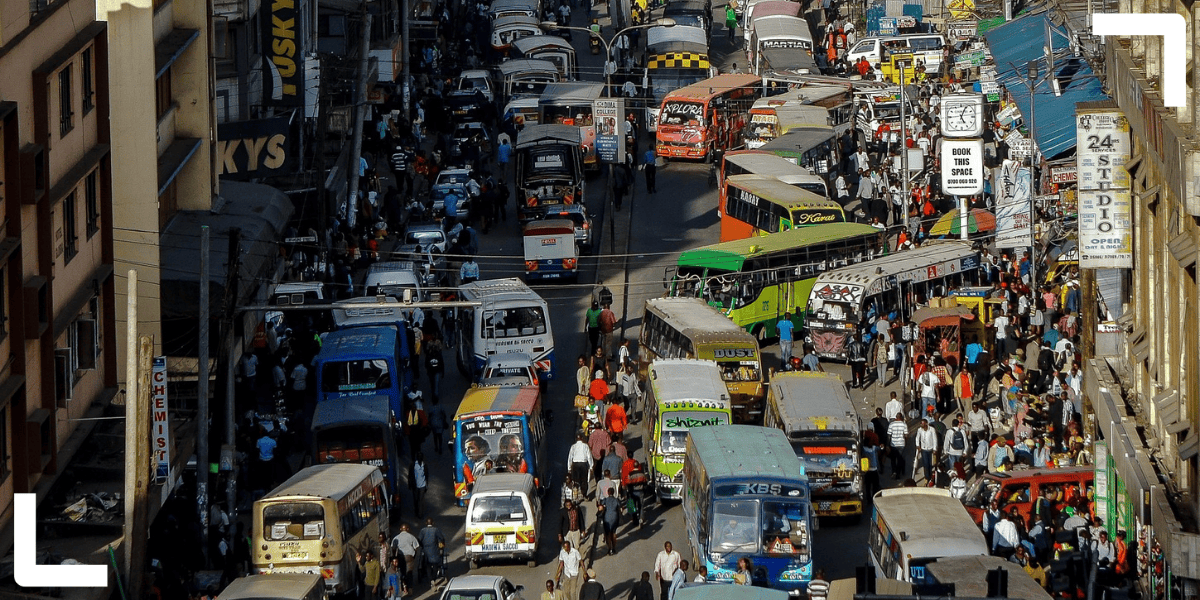Nairobi is central to the Kenyan economy, as a key political battleground and a hub for business networks and national and transnational trade. Yet it faces an increasingly complex set of socioeconomic, health and spatial inequalities.
A new report by Alice Sverdlik, Linda Nkatha Gichuiya, Zoltán Glück, Karuti Kanyinga, Wangui Kimari, Joshua Magero, Miriam Maina, George Michuki, Veronica Mwangi, Baraka Mwau, Inviolata Njoroge, Lilian Otiso and Samuel Owuor synthesises key insights from ACRC research on Nairobi’s urban development.
Exploring how national and city-level politics, urban systems and configurations of actors, agencies, ideas and practices have shaped Nairobi’s development, the report examines key challenges and emerging opportunities. It focuses on domains with potential to catalyse progressive interventions: safety and security; health, wellbeing and nutrition; housing; and structural transformation.
Lasting colonial legacies
Nairobi’s colonial legacy – as a settler capital marked by racial segregation and other divides – strongly shapes its politics and development today. Shelter provision and several underpinning systems remain biased in favour of colonial-era European areas, with many informal settlements (in areas designated as ‘African’) are still denied vital services. Militarised policing and criminalisation of low-income residents perpetuate colonial principles.
Shifting ethnic alliances, crony capitalism and competitive elections maintain a narrow elite in power. Cartels and other informal service providers often play a pivotal role, and their links to officials can make them difficult to dislodge.
Persistent developmental problems affect the wellbeing and life prospects of residents – particularly marginalised groups – and may also damage the environment. Poorly integrated, low-quality systems have major negative knock-on effects, especially for Nairobi’s low-income residents.
Challenges and emerging trends
The report explores Nairobi’s interrelated challenges, including inadequate services and infrastructure; minimal responsiveness to low-income citizens; and disjointed, exclusionary city planning efforts. Nearly all residents of Nairobi’s informal settlements live in poor-quality rental housing, and there has been a failure to regulate the city’s shelter or land markets.
Political alliances in Kenya are fluid and elite pacts are frequently remade. Nairobi’s local political leadership has often shown limited accountability and widespread use of patronage – hampering the delivery of critical services and infrastructure, especially in informal settlements. Nairobi also faces challenges around incomplete decentralisation, limited own-source revenue collection and underspending of revenues on development.
This lack of farsighted urban planning, compounded by fragmented agencies and few cross-sectoral interventions, has also led to challenges in addressing climate change. Nairobi’s major climate-related threats include heatwaves, water and food insecurity, and elevated risks of flooding, which have resulted in rising ill-health as well as forcible evictions.
Towards inclusive urbanisation pathways
Moving forward, the report’s authors argue that Nairobi’s planning systems need urgent reform to enable holistic approaches to rental housing, resilient infrastructure and inclusive economic development. Implementing such integrated strategies will be complex, with likely pushback from officials and private sector groups who benefit from the status quo.
The report identifies various entry-points for equitable, farsighted actions in each of the domains studied and key opportunities to foster inclusive urbanisation. There are vibrant policy networks, start-ups and mobilised civil society actors – such as a flourishing network of grassroots social justice centres – which make Nairobi a fertile ground for innovations and reform coalitions.
We are currently setting up action research projects in Nairobi, using findings from this initial research to inform co-produced interventions that can better address key challenges. These include extending Nairobi County’s school feeding programme to informal settlements, establishing a holistic waste management system in Mathare, improving water and sanitation in Mukuru, and empowering communities with data on land ownership.
Header photo credit: ninastock / Pixabay. A busy street in Nairobi, Kenya.
The African Cities blog is licensed under Creative Commons Attribution-NonCommercial-NoDerivatives 4.0 International (CC BY-NC-ND 4.0), which means you are welcome to repost this content as long as you provide full credit and a link to this original post.


